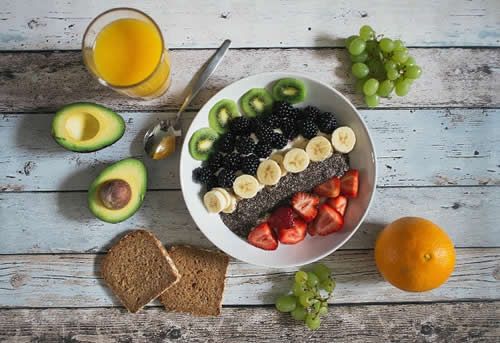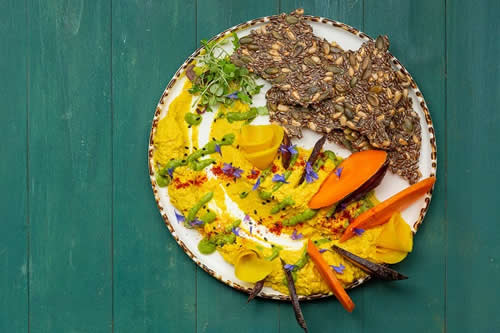Positive Health Online
Your Country

Vegan Kids – How to Make Sure their Diet is Nourishing
by Louise Palmer-Masterton(more info)
listed in vegetarianism, originally published in issue 274 - November 2021
Commonly questioned is whether a vegan diet is ‘safe’ for children and there are concerns that they will lack the right nutrition if they follow a vegan diet.
Actually, the world is actually full of healthy vegan children, we just don’t hear about them. All we hear is one extreme horror story of an Australian family depriving their baby by feeding them only vegan food. In fact, it turned out that they are depriving their child of food, period, and of course that will lead to ill health. There is no link between veganism and malnutrition amongst children of any age, as long as attention is paid to balanced nutrition. This is the same for any ‘diet’ whether vegan or meat-based.

The first thing you need to do if you are considering raising vegan children is educate yourself. A diet of vegan burgers might have been ok for you pre baby, but your children will need more. So, if you don’t already love to cook, it is time to get cooking. And it’s time to fall in love with lentils, beans, nuts, seeds and a wild array of vegetables.
You need to become an expert in plant-based nutrition and understand what constitutes a balanced diet. With children as well as balanced protein and healthy fats, you will need to pay particular attention to vitamin D, vitamin B12, calcium, zinc and iron.
The best possible start in life for your baby is breastfeeding, and for mum to eat a healthy and balanced diet whilst feeding. It’s wise for this reason that she continues to take a pregnancy safe vitamin supplement. That will pass on the best possible nutrition to your child.
Every child is different when it comes to weaning, my eldest breastfed until more than two years old, and the Vegan Society advice is to continue breastfeeding until your child is two years old if possible. My youngest however stopped the minute they discovered proper food at 10 months, so don’t worry if your child doesn't seem to want to keep breastfeeding.

Both my children were weaned first on blended banana and avocado, which is a legend in our house (try it!), and graduated to blended lentils and vegetables, thick soups and baby versions of what we were eating. It’s sensible to pay attention to a vegetable protein component at each meal, for example lentils, beans or quinoa along with vegetables and healthy fats. Babies can eat nuts and seeds, but only if ground or completely blended.
Some babies will let you know when they want food - they may even start grabbing it from your hands! I would definitely allow this. My second child just had what she wanted from what we were eating, and it was a lot easier.
With regard to vitamin B12 which all vegans should be mindful of, there are a number of fortified foods to consider as your child starts to eat more and breastfeed less.
The best possible thing you can do with regard to young children and B12 is get them to fall in love with Marmite (yeast extract is also good). A go to snack of toast and marmite will contain plenty of B12. We also use marmite in many savoury dishes - soups, stews and the best vegan gravy ever. My children are Marmite lovers to this day. We also use Engevita flakes as a cheese substitute, sprinkled on pasta and in many sauces. Engevita is super charged with B12.

I’d also recommend getting your children to fall in love with hummus as young as possible. Hummus is one of those super nutritious super available superfoods, and served with pitta and carrot and cucumber sticks is a winner with most children. Served together in this way, hummus and pitta is what's called a complete protein - between them, pitta and hummus contain the full spectrum of amino acids that you need.
There is a lot of talk about getting the full spectrum of these essential amino acids that is generally misunderstood. Animal-based proteins contain all nine essential amino acids, which makes them complete proteins, but it is not actually necessary to eat one food that contains everything. That’s where the idea that vegans lack protein comes in, which is false. Combining plant foods results in complete protein and gives exactly the same result nutritionally.
There are a few plant-based foods that are ‘complete’ proteins on their own, i.e. contain the full spectrum amino acids. They include: Tofu, tempeh, edamame beans, quinoa, buckwheat, amaranth and chia seeds. Some of these are a bit of an acquired taste for an infant, quinoa for example needs a bit of hiding in a tasty-flavoured sauce. But mine always did well with edamame beans, scrambled tofu and fresh fruit chia pudding.
But rather than focus on just these foods, your protein repertoire can expand massively by combining vegan proteins from different sources (like the hummus and pitta example above) which alone are not complete, both together magically provide a complete protein.
It’s worth noting, by the way, that 100g of wholemeal bread contains 13g of protein, which is more than in 100g of egg, and all vegetables do have a protein component. A diet rich in vegetables can make a significant contribution to your daily nutritional needs, including protein.
Here are some food combining ideas:
- Rice and lentils or beans. Both brown and white rice when combined with beans or lentils give a complete protein. And there are literally millions of recipes out there containing beans or lentils, rice (or other grains) and vegetables. Just about every continent on the planet has a version of this cuisine.
- Beans on toast. Yes, classic beans on toast is a complete protein. Very helpful in those moments when time is of the essence and you have hungry children.
- Peanut butter sandwich. This will come as a welcome surprise maybe! And yes, a peanut butter sandwich is a very high complete protein.
Once your baby is weaned and able to feed themselves (more or less) it’s all about making their favourite dishes as balanced and tasty as possible. Continue with attention to a protein and vegetable component with every meal, where they are getting their B12 from, and get their other nutrients from as wide variety of vegetables of all colours and types as possible.
So, it really is safe to wean your baby and bring up your children on a wholefood plant-based diet. You will often read about concerns of deficiency in the vegan diet, especially with regard to protein. But the truth is that protein deficiency is rarely seen in affluent populations, and generally only seen in populations where ALL food is scarce. Simply put, where food is abundant, all people, regardless of their dietary choices, will be getting more than enough protein, and following the steps as outlined above, will ensure your child will thrive on a wholefood plant-based diet.
Comments:
-
No Article Comments available